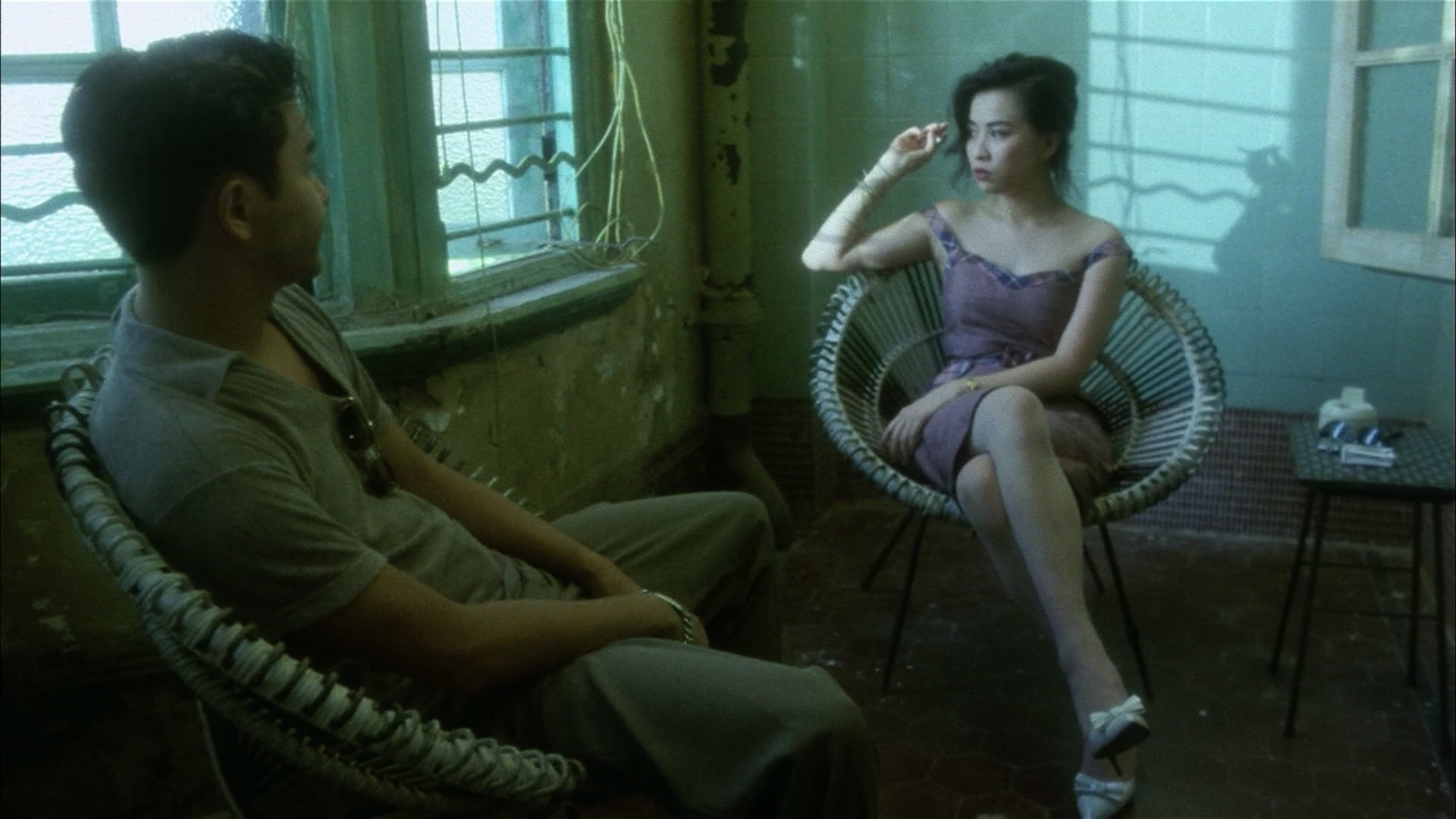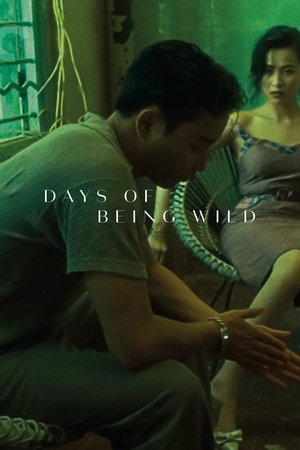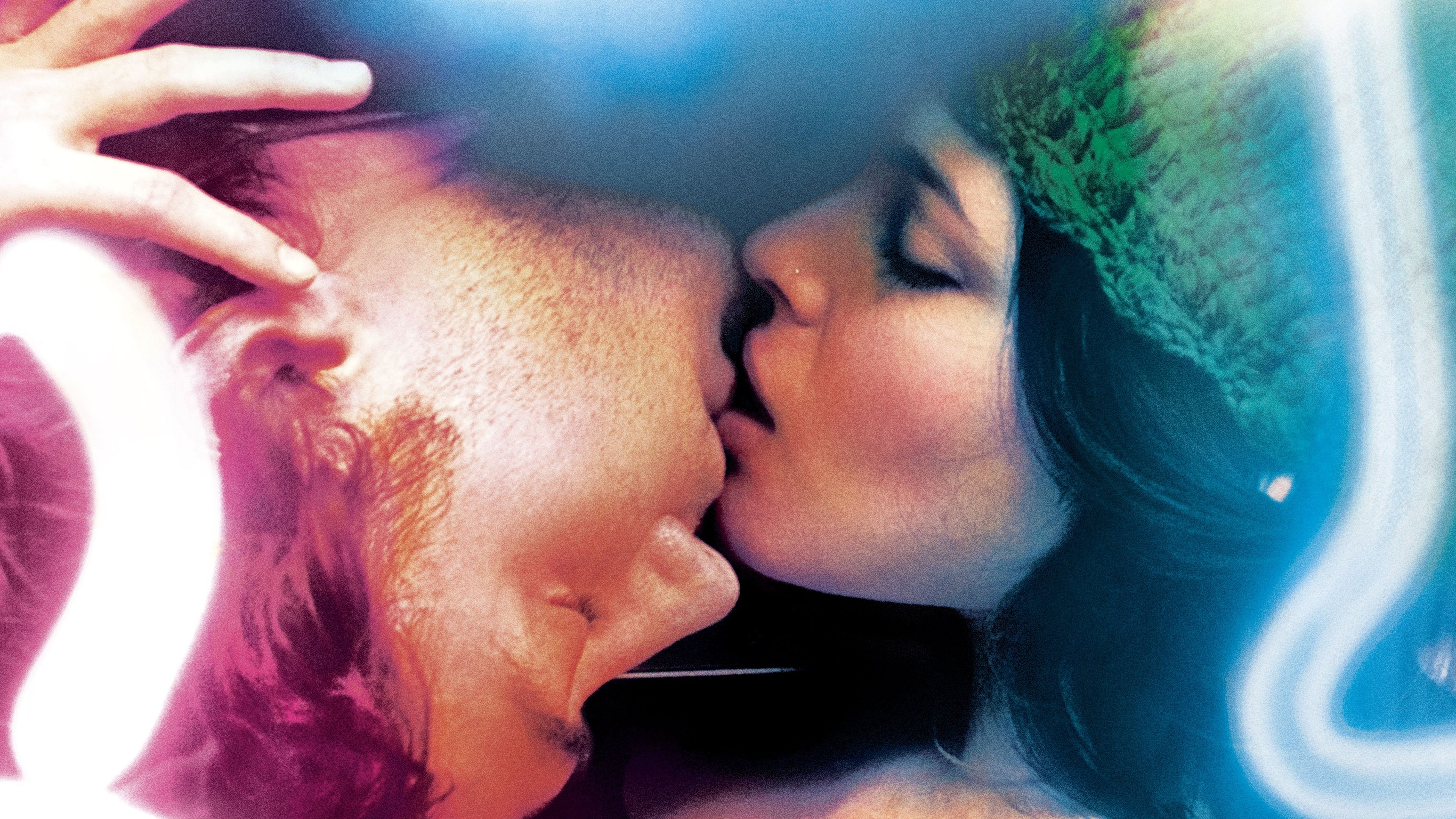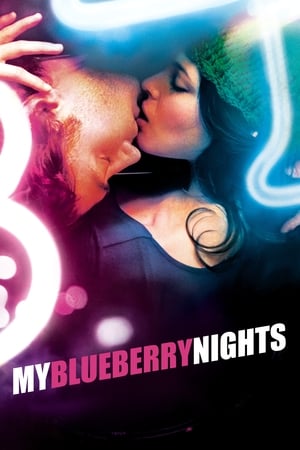Wong Kar Wai is a highly regarded Hong Kong film director and screenwriter known for his distinct visual style and exploration of themes such as love, loss, and the human condition.
His films are notable for their poetic sensibility, their stylized cinematography, and their use of music to heighten emotional impact. Here are some of his best films and a brief introduction to each:
“In the Mood for Love” (2000): This film is a romantic drama set in 1960s Hong Kong, telling the story of two neighbors who discover that their spouses are having an affair.
The film explores themes of loneliness, yearning, and unrequited love, and is known for its beautiful cinematography and iconic performances by Tony Leung and Maggie Cheung.
Best Wong Kar Wai Films
Wong Kar Wai’s films are poetic, visually stunning, and emotionally resonant.
They offer a unique perspective on the complexities of the human experience, and are well worth exploring for fans of world cinema.
1. In the Mood for Love (2000)
“In the Mood for Love” is a 2000 Hong Kong romantic drama film directed by Wong Kar-wai. It is widely regarded as one of the greatest films of the 21st century and is considered to be Wong Kar-wai’s masterpiece.
The film stars Tony Leung and Maggie Cheung as neighbors in 1960s Hong Kong who form a close bond after suspecting that their spouses are having an affair.
The film explores themes of love, loss, memory, and the passage of time.
The film is highly acclaimed for its stunning cinematography, intricate storytelling, and powerful performances by its lead actors.
The use of slow-motion, music, and color creates a dreamlike atmosphere that perfectly captures the film’s themes.
The film has won numerous awards, including the Grand Prix at the Cannes Film Festival, and has been praised for its timeless and universal depiction of love and loss.
2. 2046 (2004)
2046″ is a Hong Kong romantic drama film directed by Wong Kar Wai, which premiered at the Cannes Film Festival in 2004.
The film is a loose sequel to his earlier film “In the Mood for Love” and continues to explore themes of love, longing, and the passage of time.
The story of “2046” is set in Hong Kong in the 1960s and follows a struggling writer named Chow Mo-wan, played by Tony Leung, as he reflects on his past relationships and struggles to move on.
The film also features a number of female characters, including his former lovers and other women he encounters in his life.
Throughout the film, we see the characters grappling with their desires and the consequences of their actions.
There is a constant interplay between past and present, reality and imagination, as the characters navigate their relationships and try to make sense of their feelings.
If you like Wong Kar Wai’s work, on our sister site AuteurGraph we have a profile page, a visual film timeline, and a ratings page that gives a tonne of info and data about their career in a visualized form.
One of the most notable aspects of “2046” is its stunning visual style, which incorporates bold colors, intricate sets, and innovative cinematography.
The film also features a haunting and evocative score by Shigeru Umebayashi.
Overall, “2046” is a visually stunning and emotionally resonant film that explores the complexities of love and relationships.
It is a powerful and poignant meditation on the human experience and the fleeting nature of time.
- Factory sealed DVD
- Tony Leung, Gong Li, Faye Wong (Actors)
- Wong Wai (Director) - Wong Wai (Producer)
- English, Spanish (Subtitles)
- English (Publication Language)
3. Fallen Angels (1995)
“Fallen Angels” is a 1995 Hong Kong crime film directed by Wong Kar-wai, and it stars Leon Lai, Michelle Reis, and Takeshi Kaneshiro.
The film is a companion piece to Wong’s earlier film, “Chungking Express”, and it tells the story of a contract killer, his female partner, and a mute ex-convict who become intertwined in a web of violence, betrayal, and doomed romance in the neon-lit streets of Hong Kong.
Like “Chungking Express”, “Fallen Angels” is known for its stylized cinematography, its use of pop music, and its exploration of themes of alienation, urban decay, and the search for human connection.
The film is shot in a fragmented and impressionistic style, with scenes of intense violence and eroticism interspersed with moments of melancholy and introspection.
One of the standout elements of the film is its soundtrack, which features a mix of pop songs and instrumental music that perfectly captures the film’s moody and atmospheric tone.
Wong’s use of music and sound is a trademark of his style and helps to create a hypnotic and dreamlike experience for the viewer.
Overall, “Fallen Angels” is a powerful and haunting film that showcases Wong’s unique visual style and his ability to capture the beauty and loneliness of life in the big city.
It is a must-see for fans of Hong Kong cinema and for those who appreciate innovative and visually stunning filmmaking.
4. Happy Together (1997)
“Happy Together” is a 1997 Hong Kong drama film directed by Wong Kar-wai.
The film follows a gay couple, played by Tony Leung and Leslie Cheung, as they move to Buenos Aires to start a new life, but their relationship becomes strained as they struggle with feelings of loneliness and the difficulties of their past.
The film is known for its beautiful cinematography, with lush and colorful visuals that contrast with the inner turmoil of the characters.
Wong Kar-wai’s signature use of slow-motion, music, and color is on full display in this film.
The performances of Tony Leung and Leslie Cheung are widely praised, with their nuanced and emotionally resonant performances capturing the struggles of their characters.
“Happy Together” won the Best Director award at the Cannes Film Festival and has been noted for its exploration of gay themes and relationships, which was groundbreaking for Hong Kong cinema at the time.
The film is considered to be one of Wong Kar-wai’s most personal and introspective works.
- Leslie Cheung, Tony Leung Chiu Wai, Chen Chang (Actors)
- Kar Wai Wong (Director) - Kar Wai Wong (Writer)
- English (Subtitle)
- Audience Rating: Unrated (Not Rated)
5. Chungking Express (1994)
“Chungking Express” is a Hong Kong romantic comedy-drama film directed by Wong Kar Wai. The film is notable for its nonlinear narrative structure, its use of handheld cameras, quick cuts, and its exploration of themes such as love, loneliness, and the passage of time.
The film is divided into two distinct but interwoven stories, both set in the vibrant and bustling streets of Hong Kong.
The first story follows a jaded police officer, played by Tony Leung, who becomes involved with a mysterious woman in a blond wig, played by Brigitte Lin.
The second story follows a fast food worker, played by Faye Wong, who falls in love with a recently dumped man, played by Takeshi Kaneshiro.
Through the two stories, the film explores the themes of chance encounters, fleeting connections, and the fleeting nature of time.
The use of handheld cameras and quick cuts creates a sense of urgency and immediacy, as if the audience is experiencing the same sense of hurriedness and transience as the characters.
One of the most notable aspects of “Chungking Express” is its innovative use of music, particularly the song “California Dreamin’” by The Mamas & the Papas, which is played throughout the film and becomes a recurring motif.
The film also features a playful and witty screenplay, with elements of humor and absurdity interspersed with moments of heartfelt emotion.
Overall, “Chungking Express” is a visually stunning and emotionally resonant film that captures the energy and vibrancy of Hong Kong.
It is a powerful and poignant exploration of the human experience and the fleeting nature of time, and is considered a classic of Hong Kong cinema.
- Tony Leung, Takeshi Kaneshiro, Faye Wong (Actors)
- Wong Kar-Wai (Director)
- English (Subtitle)
- English (Publication Language)
- Audience Rating: R (Restricted)
6. Days of Being Wild (1990)


Days of Being Wild
1990 • 1h 34min • ★ 7.3/10 • Hong Kong
Directed by: Wong Kar-wai
Cast: Leslie Cheung, Andy Lau, Maggie Cheung, Carina Lau, Jacky Cheung
Yuddy, a Hong Kong playboy known for breaking girls' hearts, tries to find solace and the truth after discovering the woman who raised him isn't his mother.
“Days of Being Wild” is a 1990 Hong Kong drama film directed by Wong Kar-wai.
The film follows a group of young people living in Hong Kong in the 1960s, focusing on a womanizer named Yuddy (Leslie Cheung) and his romantic relationships with several women, including Su Lizhen (Maggie Cheung) and Mimi (Carina Lau).
The film is known for its unique visual style and atmospheric storytelling, with Wong Kar-wai’s signature use of music and color creating a dreamlike and nostalgic atmosphere.
The film is also noted for its unconventional structure, with the plot unfolding through a series of vignettes that reveal the interconnectedness of the characters’ lives.
The film features standout performances by Leslie Cheung and Maggie Cheung, who deliver nuanced and emotionally complex performances that capture the heartache and longing of their characters.
“Days of Being Wild” is widely regarded as a masterpiece of Hong Kong cinema and a key work in Wong Kar-wai’s filmography. It was also the first film in a trilogy of loosely connected works by the director, including “In the Mood for Love” and “2046.”
- Factory sealed DVD
- Kar Wai Wong, Leslie Cheung, Maggie Cheung, Andy Lau, Carina Lau, Rebecca Pan (Author)
- English (Subtitle)
- Audience Rating: Unrated (Not Rated)
- 10/19/2004 (Publication Date) - Kino Lorber films (Publisher)
7. Ashes of Time (1994)
“Ashes of Time” is a Hong Kong wuxia film directed by Wong Kar Wai. The film is loosely based on the novel “The Legend of the Condor Heroes” by Jin Yong and features an ensemble cast that includes Leslie Cheung, Tony Leung, Brigitte Lin, and Maggie Cheung.
The film is set in ancient China and follows Ouyang Feng, a disillusioned and embittered swordsman played by Leslie Cheung, as he makes a living by selling his skills to those who seek revenge or justice.
The film explores themes of love, loss, and the passage of time, as Ouyang Feng grapples with his own emotions and the memories of his past.
One of the most notable aspects of “Ashes of Time” is its stunning cinematography, which features sweeping landscapes, beautiful colors, and striking imagery.
The film also features a haunting and evocative score by Frankie Chan and Roel A. Garcia.
The nonlinear narrative structure of the film, with its frequent flashbacks and jumps in time, creates a sense of disorientation and ambiguity that mirrors the emotional turmoil of the characters.
The film also features elements of surrealism and magic realism, with scenes that blur the boundaries between reality and fantasy.
Overall, “Ashes of Time” is a visually stunning and emotionally resonant film that explores the themes of love, loss, and the human experience.
It is a powerful and poignant meditation on the nature of memory and the passage of time, and is considered a classic of Hong Kong cinema.
- English (Subtitle)
- Audience Rating: R (Restricted)
- Sony Pictures Home Entertainment (Publisher)
8. As Tears Go By (1988)
“As Tears Go By” is a 1988 Hong Kong crime drama film directed by Wong Kar-wai, and it stars Andy Lau, Maggie Cheung, and Jacky Cheung.
The film follows the story of a young and hot-headed triad member, Wah, who falls in love with his cousin’s girlfriend, Ngor, while trying to keep his gangster life under control.
The film explores themes of loyalty, violence, and the struggle to balance the demands of a criminal lifestyle with the desire for love and human connection.
One of the standout features of the film is Wong’s use of atmospheric and moody cinematography to capture the gritty and dangerous world of the Hong Kong criminal underworld.
The film is shot in a dark and shadowy style, with bursts of violent action punctuating the slow-building tension of the story.
The film’s themes of love and loyalty are underscored by a powerful and evocative soundtrack, featuring songs by artists such as The Rolling Stones and Dinah Washington.
Wong’s use of music in the film is masterful, adding an emotional depth and complexity to the story that resonates long after the credits roll.
Overall, “As Tears Go By” is a gripping and powerful film that showcases Wong’s ability to create unforgettable characters and atmospheric visuals that draw the viewer into his world.
It is a must-see for fans of Hong Kong cinema and for those who appreciate intense and emotionally charged crime dramas.
- Factory sealed DVD
- Andy Lau, Maggie Cheung, Jacky Cheung (Actors)
- Kar Wai Wong (Director) - Jeffrey Lau (Writer)
- English (Subtitle)
- Spanish (Publication Language)
9. The Grandmaster (2013)
“The Grandmaster” is a 2013 Hong Kong-Chinese martial arts film directed by Wong Kar-wai. The film is a biographical drama that tells the story of Ip Man, a legendary martial arts master who trained Bruce Lee.
The film is known for its stunning cinematography and action sequences, which were choreographed by Yuen Woo-ping.
Wong Kar-wai’s signature style is evident in the film’s use of color and music, as well as its focus on themes of honor, duty, and the passing down of tradition from one generation to the next.
The film stars Tony Leung as Ip Man and Zhang Ziyi as Gong Er, a fellow martial arts master who becomes romantically involved with Ip Man.
The performances of the two leads are widely praised, with Leung’s restrained and elegant portrayal of Ip Man standing out in particular.
While “The Grandmaster” was a commercial success and received positive reviews, some critics have criticized the film’s historical accuracy and pacing.
Nevertheless, the film remains a visually stunning and emotionally resonant work by one of Hong Kong’s greatest filmmakers.
10. My Blueberry Nights (2007)


My Blueberry Nights
How do you say goodbye to someone you can't imagine living without?
2007 • 1h 35min • ★ 6.4/10 • France
Directed by: Wong Kar-wai
Cast: Norah Jones, Jude Law, David Strathairn, Rachel Weisz, Natalie Portman
Elizabeth has just been through a particularly nasty breakup, and now she's ready to leave her friends and memories behind as she chases her dreams across the country. In order to support herself on her journey, Elizabeth picks up a series of waitress jobs along the way. As Elizabeth crosses paths with a series of lost souls whose yearnings are even greater than her own, their emotional turmoil ultimately helps her gain a greater understanding of her own problems...
“My Blueberry Nights” is a romantic drama film directed by Wong Kar Wai. It stars Norah Jones, making her acting debut, alongside Jude Law, Rachel Weisz, Natalie Portman, and David Strathairn.
The film follows Elizabeth (played by Norah Jones), a young woman who sets out on a journey across America after the end of a painful relationship.
Along the way, she meets a series of intriguing and complex characters, including a charming café owner (played by Jude Law), a troubled alcoholic (played by David Strathairn), and a savvy gambler (played by Natalie Portman).
Through her encounters, Elizabeth learns important lessons about love, loss, and the nature of human connection.
One of the most notable aspects of “My Blueberry Nights” is its stunning visual style, which incorporates vivid colors, sweeping camera movements, and evocative imagery.
The film also features a beautiful and melancholic soundtrack by composer Ry Cooder, which complements the film’s themes of love and longing.
The film marks a departure from Wong Kar Wai’s usual setting of Hong Kong, with the majority of the story taking place in America.
However, the film retains the director’s signature focus on the complexities of human relationships and the fleeting nature of time.
Overall, “My Blueberry Nights” is a visually stunning and emotionally resonant film that explores the themes of love, loss, and the human experience.
It is a powerful and poignant meditation on the nature of human connection and the importance of cherishing the moments we have.
No products found.
3 Characteristics of Wong Kar Wai Films
Wong Kar-wai is known for his unique and visually striking style of filmmaking. Here are three characteristics that define his films:
Stylistic cinematography: Wong Kar-wai’s films are often characterized by their highly stylized and visually striking cinematography.
He employs a range of techniques to create an evocative and immersive atmosphere, including slow-motion, handheld cameras, and striking color palettes.
His films often feature stunningly beautiful images of Hong Kong and other urban settings, which are frequently shot at night to create a moody and atmospheric tone.
Exploration of themes of love, loss, and longing: Wong’s films are known for their poignant exploration of themes of love, loss, and longing.
His characters are often struggling to find meaning and connection in a chaotic and confusing world, and their search for love and human connection is a recurring theme throughout his films.
Wong’s films are characterized by their emotional intensity and their ability to capture the complexities and contradictions of human relationships.
Use of music: Wong Kar-wai’s films often feature an eclectic mix of music, ranging from classic pop and rock songs to original compositions by talented composers such as Shigeru Umebayashi.
His use of music is masterful, adding an emotional depth and complexity to his stories that resonates long after the film has ended.
Wong’s films are often noted for their innovative use of music and sound, which help to create a unique and immersive experience for the viewer.
3 Reasons Why You Should Watch Wong Kar Wai Films
Here are three reasons why you should watch Wong Kar Wai films:
Unique visual style: Wong Kar Wai is known for his stunning visual style, with his use of color, camera movement, and music creating a dreamlike atmosphere that is both beautiful and haunting.
His films are often set in neon-lit cities, with the urban landscape serving as a metaphor for the characters’ inner turmoil and emotional struggles.
Watching a Wong Kar Wai film is like entering a vivid dream world, where the sights and sounds are both beautiful and mysterious.
Emotionally resonant storytelling: Wong Kar Wai’s films are often characterized by their focus on human relationships and the longing for connection.
His characters are often lonely and searching for meaning, and the films explore themes of love, loss, and the passage of time.
Despite their unique visual style, Wong’s films are deeply emotional and relatable, exploring the complexities of the human experience in a way that is both poignant and thought-provoking.
Influential director: Wong Kar Wai is one of the most influential filmmakers of the past few decades, with his unique visual style and innovative storytelling techniques inspiring countless other directors.
His films have won numerous awards and critical acclaim, and have been studied and analyzed by scholars and film lovers around the world.
Watching Wong Kar Wai films is not only a pleasure in and of itself, but also an opportunity to appreciate the work of one of the great masters of modern cinema.
Best Wong Kar Wai Films – Wrapping Up
Wong Kar Wai is one of the most acclaimed and influential filmmakers of our time. His films are known for their beautiful cinematography, evocative imagery, and exploration of themes such as love, loss, and the passage of time.
Some of Wong Kar Wai’s most iconic and beloved films include “In the Mood for Love”, “Chungking Express”, and “2046”.
These films are widely regarded as classics of Hong Kong cinema, and have influenced countless filmmakers around the world.
“In the Mood for Love” is perhaps Wong Kar Wai’s most famous and celebrated film, and is widely regarded as a masterpiece of world cinema.
The film is a beautiful and poignant meditation on the nature of love and desire, set against the backdrop of 1960s Hong Kong.
Other notable Wong Kar Wai films include “Days of Being Wild”, “Ashes of Time”, and “Happy Together”, each of which showcases the director’s unique visual style and his ability to evoke complex emotions through his filmmaking.
Overall, Wong Kar Wai’s films are a beautiful and moving exploration of the human experience, and are a testament to the power of cinema to touch our hearts and minds.







![Happy Together [DVD]](https://m.media-amazon.com/images/I/51QDVWHHH3L.jpg)
![Chungking Express (The Criterion Collection) [Blu-ray]](https://m.media-amazon.com/images/I/512i+rhUasL.jpg)





![THE GRANDMASTER - VARIOUS [DVD] [2013]](https://m.media-amazon.com/images/I/51Ti8+kUl7L.jpg)
